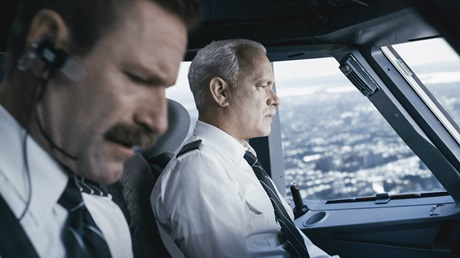A terrific, haunting recasting of the true nature of heroism.

On Thursday, January 15, 2009, Twitter wasn’t the virtual water cooler it is now, so when New Yorkers heard that a plane had landed in the icy Hudson River, we had to go to actual news sites to calm our nerves. When it became clear that there was no foul play on US Airways Flight 1549, the pilot, Captain Chesley “Sully” Sullenberger, became an American hero overnight, fêted in the national press and the streets. Of the 155 people on board, he didn’t lose one. “Miracle on the Hudson,” indeed.
But no story of an American hero is as simple as it seems on the evening news. In the moving and remarkably restrained Sully, director Clint Eastwood digs into the reality behind the hagiography and presents a challenge to our collective tendency to make hero and celebrity interchangeable terms—all without discrediting Sully himself. This isn’t the “untold story,” the way we usually think about it: it’s just a straightforward examination of what heroism really is.
Not that Sully (played here by the only movie star I can imagine in the role, America’s genial uncle Tom Hanks, with his hair dyed white) didn’t deserve the accolades. As the film makes clear, his decades of flying planes—military planes and, eventually, commercial jets—was the key factor in his safe, almost unimaginable landing. All the safety training and computerized flight simulators in the world can’t compare to actual cockpit experience. And the movie’s aim is to show you why that’s true.
It also makes for a tremendous, taut viewing experience. In some ways this is the ideal “dad movie,” and I mean that in the best way: a story about a guy who leaned on his years of …


